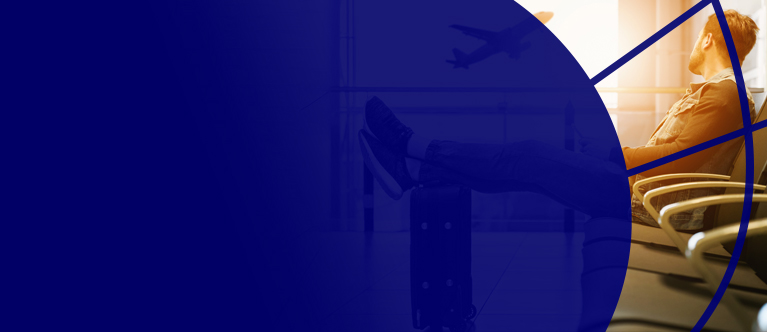Assistance provided at the Airport
Departing Passengers
The Irish Aviation Authority recommends passengers request their special assistance at the booking stage.
- If you request help more than 48 hours before your scheduled departure time, the airport management body is obliged to ensure that you receive it.
- If you give less than 48 hours notice then the airport management body is required to make every effort to help you, but assistance cannot be guaranteed where insufficient notice is provided.
The airport management bodies can provide assistance themselves or they can contract a company to deliver this assistance.
Regardless of the size of the airport, you are entitled to expect that there will be:
- Designated areas for you to announce your arrival;
- and that these designated areas will be clearly signposted.
Once you have announced your arrival, an assistance provider will be sent to collect you as soon as possible. Larger airports will have details of the timeframes on their websites within which you will be assisted.
Check-in & Security
Your assistance provider will bring you to your check-in area and help you with your baggage. They will then take you through to the security screening area.
If you have a medical condition which prevents you going through the electronic detector, ask the security staff present to perform a manual body search instead. Importantly, you can also ask to be screened in a private security room. If you are travelling with a guide dog, it will be subject to a ‘pat down’ search and the fur and harness will be checked to ensure no items are concealed on the dog.
Airport Facilities
All Irish airports have accessible toilet facilities, and your assistance provider will help you to get to them if the need arises. However, you must be able to use the facilities yourself.
All airports will make every effort to communicate important information with you in a manner which meets your particular requirements. Larger airports will have ‘Loop’ systems throughout the terminal buildings to amplify announcements. Airports will general have screens with flight information. Many of the screens are now using high-contrast colours for persons with vision impairments.
The IAA recommends all passengers visit the airport’s website prior to travel for any concerns regarding the airport’s facilities.
Boarding the Aircraft
Your assistance provider will help you to board the aircraft. On smaller aircraft, stair-climbing chairs or large ramps are used to help passengers who cannot independently climb the steps of the aircraft. Ambi-lift vehicles are used to help passengers to board larger aircraft.
It is important to note that the rules do not oblige air carriers to board disabled persons and persons with reduced mobility at any particular time.
Wheelchairs & Mobility Equipment
You will most likely use your own mobility equipment or wheelchair while in the airport. At the boarding gate, your assistance provider will then pass your mobility equipment to air carrier staff for loading into the ‘hold’ of the aircraft.
In the event that your wheelchair or mobility equipment is lost or damaged during the loading process or during the flight itself, you should contact the airport management body immediately. They will provide you with a temporary replacement (though not on a like-for-like basis). You will also be compensated for the damage/loss by the airport management body or the air carrier as appropriate.
Transiting Passengers
If you are travelling on a journey which requires you to transit through an airport in one of the EU Member States or an airport in Norway, you can expect to receive help in disembarking the aircraft from an assistance provider at the transit airport.
They will help you through the airport (via any relevant security, emigration or customs procedures) and take you to your next boarding gate. If you wish to do some shopping or have something to eat at the transit airport, speak to your assistance provider who will try to accommodate you.
Arriving Passengers
On arrival at your destination (where that destination is an airport in one of the EU Member States or in Norway) you will be met by an assistance provider who will help you to disembark the aircraft (using a stair-climbing chair or an Ambulift as necessary).
They will then assist you with passport control and in retrieving your baggage and clearing customs. The assistance provider will drop you to an agreed designated point located within the airport boundaries.
Complaints
If you have a complaint about any aspect of the assistance provided to you by the airport management body, then you must first bring it to their attention.
If the airport management body does not resolve the complaint to your satisfaction, then you can escalate it to the appropriate enforcement body. The full list of EU National Enforcement Bodies can be found here.


